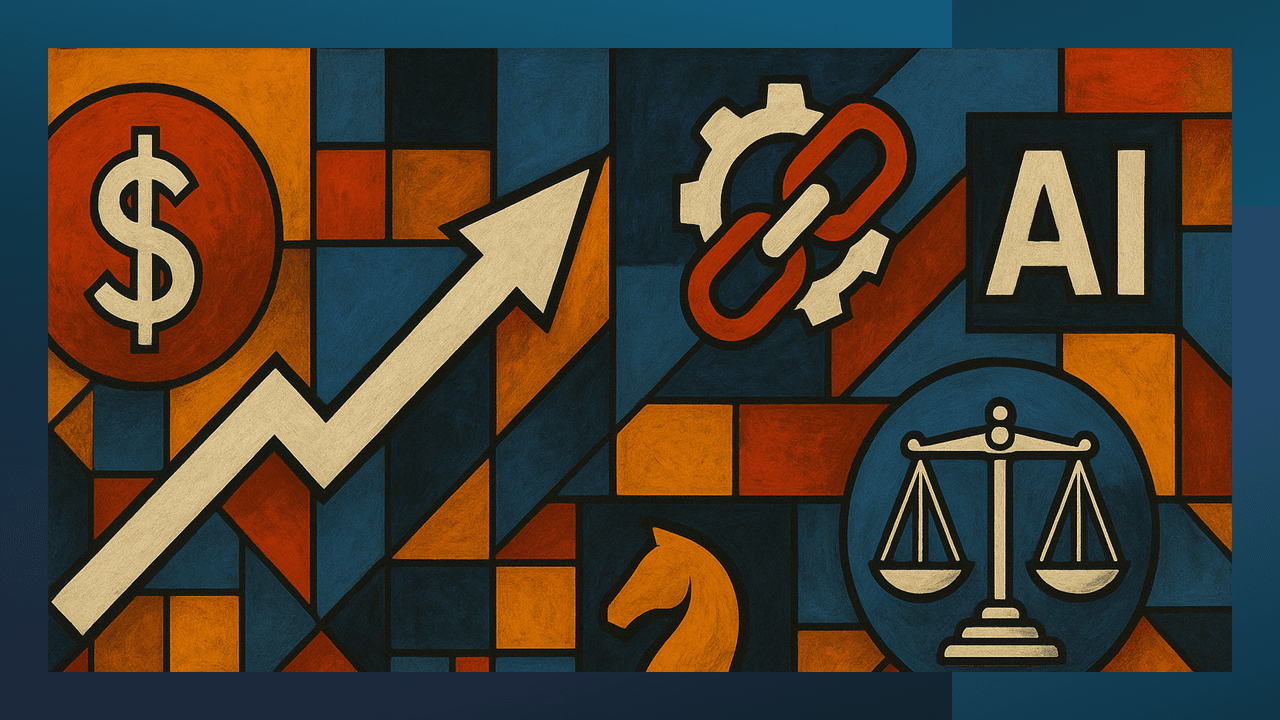Harvey Is Playing A Different Game - Is It Winning?

In the 1980s, relational databases were a battleground for technology. IBM was the incumbent but was late to market with its DB2 product. Ingres was arguably the best product, and Sybase was considered the best-engineered solution. So which business won in the marketplace?
The answer is Oracle.
Why? Because it was early to market, and it was the best marketer. In short, the Larry Ellison-led business was the most aggressive. Over time, Oracle pivoted and transformed into an industry giant. It is now back in the news after a deal with OpenAI and the report of a possible deal over the U.S. version of TikTok.
Last week generated considerable speculation surrounding legal AI company Harvey related to comments from an anonymous and allegedly former Harvey employee on Reddit. (Note: The Reddit post has been deleted, although the discussion thread remains. The individual's role, their business acumen, and whether they actually worked at Harvey are unverified.)
The legal tech community has been abuzz, igniting debate about what's going on at Harvey and whether it will be a long-term success or flame out.
Some have suggested that Harvey is just a wrapper around ChatGPT. Gabe Pereyra, the President and Co-founder of Harvey, even mentioned in a recent podcast that Harvey learned early on that language models are the product, adding some credence to that suggestion.
In my view, Harvey is competing in a different way. Just as Oracle was the eventual winner in relational databases, product functionality isn't the only success factor.
ChatGPT wrappers
If we want to consider Harvey at risk, shouldn't we also be concerned about most legal AI products? The reality is that most AI features are simply wrappers around a large language model. When an LLM introduces new capabilities, legal technology products can incorporate enhanced functionality, such as improved drafting, summarization, or deep research. When a model changes, products that embed the model typically improve, but they can also degrade.
If being a wrapper is a criticism of Harvey, shouldn't it be a criticism of most startups that have incorporated a large language model as the basis for AI functionality?
Value is not exclusive to product features
While Pereyra said "the product is the model," he did not say that the product is where value comes from. In a world where the playing field for legal AI functionality is driven by the likes of OpenAI or Anthropic, perhaps what differentiates products is not their core AI functionality.
Like Oracle, I believe Harvey is playing a different game, and that feels like it is lost amid all the chatter.
What Harvey is doing right
Here are five things I think Harvey is doing right:
- Early to market
"Which do you prefer, Lexis or Westlaw?" I've asked this question over the years, and almost universally, attorneys will offer a definitive preference for one or the other. That preference was formed in law school and is typically unchanged after practicing law. First impressions matter and attorneys stick with what is familiar. This is why Lexis and Westlaw have battled in law schools for decades. Harvey was among the first to market, and for senior partners, it was likely their first impression of a custom Generative AI workflow solution to complete specific legal tasks.
- Reference accounts
Harvey has developed reference accounts, which are crucial in the law firm space. A&O Shearman, Paul Weiss, and PWC were all early customers and advocates for Harvey. While some may focus on features and benefits as the key to success, the most straightforward way to persuade a firm to buy is to convince partners that they need a product to stay competitive. Harvey understands how law firms buy.
- Leadership buy-in
One of the biggest challenges that legal innovators face is adoption, often due to a lack of buy-in from partners. Harvey's top-down approach secures advocacy that other legal tech providers wish they had.
- Customization
By customizing projects and identifying workflows that address specific pain points at a law firm, Harvey works to solve real problems. They create integrations that tie in proprietary law firm data to achieve this. At a minimum, this adds to perceived value and switching costs.
- Raise money
Harvey has demonstrated its ability to raise money, and that money is tied to unprecedented influence in the legal technology sector. Sequoia, Kleiner Perkins, and OpenAI are all investors. It is rumored that Microsoft's CEO is also an investor. Influential money implies favors to protect investment.
Harvey isn't the perfect company - no company is. There can be a fine line between success and failure. The jury is out on the long-term success of Harvey, as well as the multitude of other startups striving to generate positive cash flow.
My ultimate point is that Harvey is playing a different game and in a different league. It is a fierce competitor and plays to win. Big names believe in Harvey, and that alone can be the difference between success and failure.
The best product doesn't always win. Oracle wasn't the best relational database. There is a difference between product and value.
We are less than three years into the Generative AI explosion. The next three years will be like an eternity, providing legal technology businesses ample time to execute, pivot, or correct their shortcomings.
Multi-year agreements with deeper integrations can provide lock-in and strong retention for legal technology businesses. Access to the true decision-makers and a mountain of cash cannot be underestimated.
I have no crystal ball, but I look forward to watching Harvey as it pursues a decidedly different strategy.
